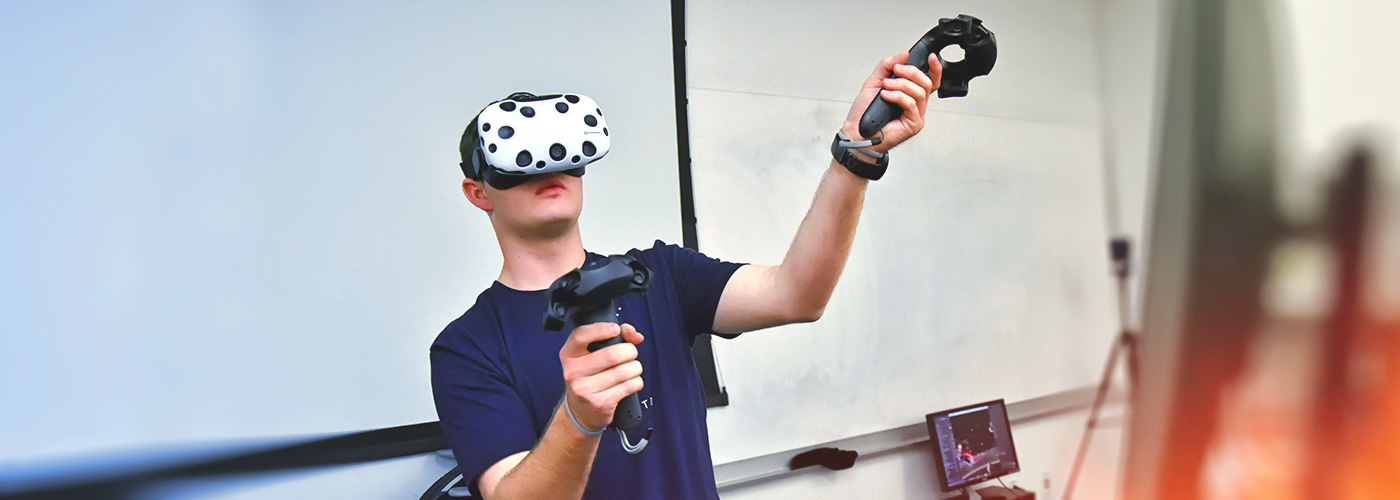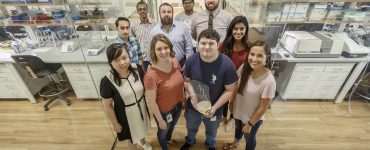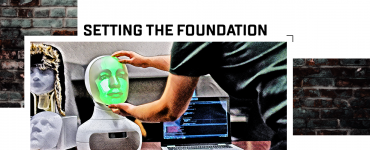When students are stuck on homework, they can now text a tutor for help. At least that was the winning idea at HackUTD, a 24-hour competition where teams of students build apps, hardware and more to solve real-world problems.
Hackathon Draws National Competition
When students are stuck on homework, they can now text a tutor for help. At least that was the winning idea at HackUTD, a 24-hour competition where teams of students build apps, hardware and more to solve real-world problems.
“Julian,” the winning project at the hackathon, is a tutoring platform that rapidly connects students to qualified tutors using text messaging. Users simply ask a question over text, tutors see it in their dashboard, claim the question and answer it.
“‘Julian’ has wide applications in the education market,” said Thomas Hobohm, a University of North Texas student who worked on the project. “We can access individual students with our texting platform, and license our infrastructure to universities or high schools for use by their instructors and teaching assistants. ‘Julian’ is the tutor that’s always just a text away.”
More than 500 students from across the country flocked to the UT Dallas campus to hunker down in the Edith O’Donnell Arts and Technology Building and build their best ideas. Some visitors like Dalton Hahn and his three teammates from Kansas State University stood out from the crowd: the team wore tall, white chef’s hats as they stewed over their laptops.
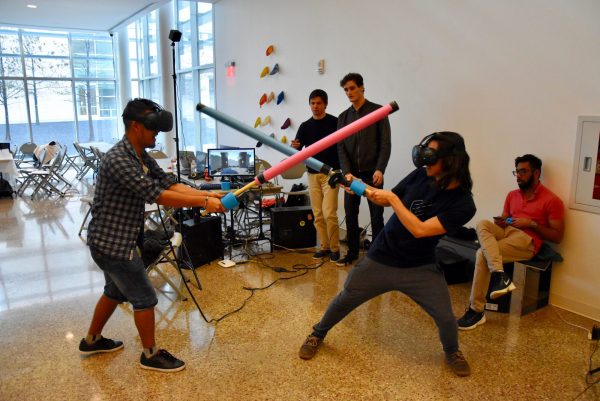
“We wore the chef hats because we are cooking up batches of spaghetti code,” Hanh said jokingly. Spaghetti code is a slang term that describes a tangled web of programming code that can be difficult to follow.
The Kansas State group created an app called “DJ Collab” that allowed people to collaborate on Spotify playlists in real time.
“If you’re at a party or dance, you can crowdsource the playlist and add music to the queue,” Hanh added.
The second-place project at the hackathon went to a hometown team as a group of Erik Jonsson School of Engineering and Computer Science students created “SwordzVR,” a multiplayer experience where two players can sword fight each other in the same virtual space.
Three UT Dallas students work on their project – an algorithm that roots out and reports abusive language on social media platforms.
“One of the biggest challenges we faced was how to provide a realistic sword for the user while still attaching the controller to keep track of the sword,” said Marwan Kodeih, a junior computer science student. “We solved this by creating a custom sword stick and controller holder. We made a custom mold and then used the 3-D printer. There were a few iterations until we found the perfect fit.”
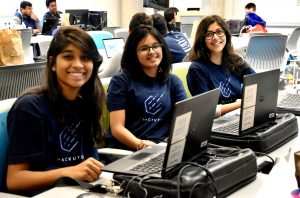
HackUTD helped students learn how to work in diverse teams, to collaborate and, ultimately, pitch their projects to a panel of judges who based their decisions on uniqueness, complexity and impact factor.
Dr. Gopal Gupta, who holds the Erik Jonsson Chair and is head of the Department of Computer Science in the Jonsson School, delivered the keynote address.
What is a Hackathon?
Hackathons are intensive tech entrepreneurial sessions wherein teams race to design programs or apps while competing for thousands of dollars in prices. The goal of HackUTD is to bring together young coders and challenge them to design and develop an original product, A total of $15,270 in prices were given to the winners. Over the past tree years, the Department of Computer Science has hosted more than 2,000 students from across the nation at UT Dallas hackathons.
“In its third year, HackUTD saw its most energized and inspired group of participants. Students tackled real world problems – like preventing cyber-bullying or providing developing nations access to healthcare – and proposed intuitive solutions using the newest technologies,” Gupta said. “This event gives students a platform to tease out ideas, to challenge themselves and others and further prepares them for futures that require creative thinking to solve complex issues.”
Between coding their apps, attendees also networked with industry representatives and attended tech talks from event sponsors like State Farm and Wal-Mart.
The third annual HackUTD was organized by the UT Dallas Student Chapter of the Association for Computing Machinery with the guidance of Dr. John Cole, a UT Dallas computer science professor.
Additional sponsors for the event included Wolters Kluwer, Raytheon Co. and New York Life. Partners for the event included Major League Hacking, Quantopian, Namecheap, PolyPrinter, VRS, Microsoft Corp. and UTDesign, the Jonsson School’s corporate-sponsored capstone program.

